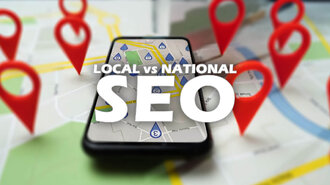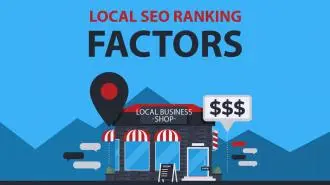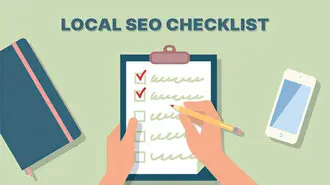For businesses that operate locally, run-of-the-mill SEO tactics might not really work.
Every locality differs from others, as do the needs and aspirations of the local audience. To effectively conduct business and carve a niche among the locals, your business needs to focus on local SEO tactics.
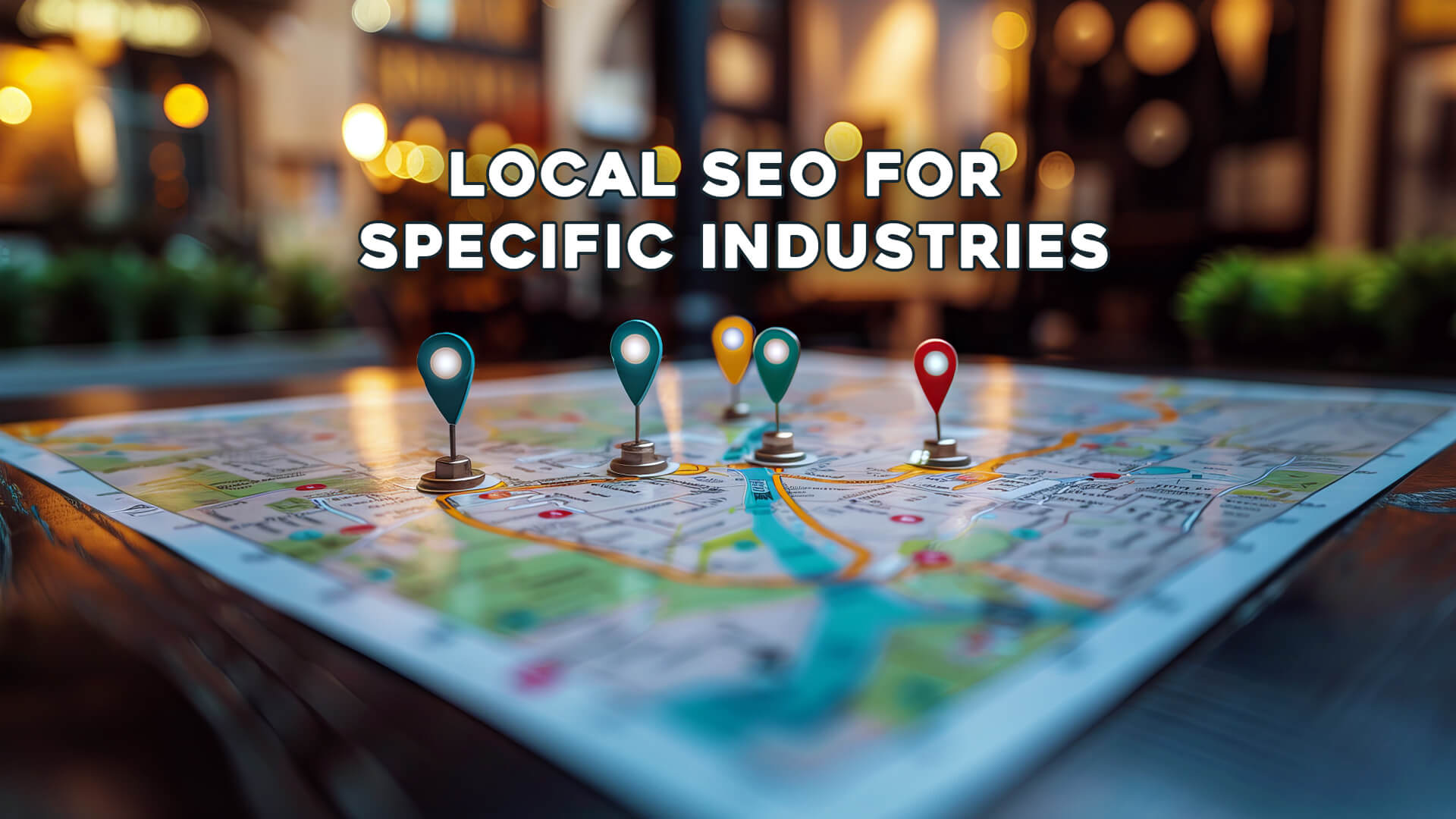
This means crafting SEO strategies with an emphasis on the local population. And don’t think that just because you’ll be doing SEO for a particular geographical area, it’s going to be any easy. If anything, local SEO is more nuanced and complicated than regular SEO, as you need to get in front of the customers exactly when they need you.
In the following guide, we’ve detailed everything you need to know to begin and boost your local SEO efforts, so make sure you read the entire article.
Let’s get started!
Want to receive updates? Sign up to our newsletter
Each time a new blog is posted, you’ll receive a notification, it’s really that simple.
Building And Managing Local Citations
Local citations refer to mentions of your business details on multiple online sources, such as review sites, online directories and data aggregator sites. Such citations include business names, addresses, phone numbers, customer reviews, and images.
Citations such as these play a vital role in local SEO, allowing search engine algorithms to verify your business’s location and legitimacy. Accurate, consistent citations across multiple platforms improve your local rankings and search visibility.
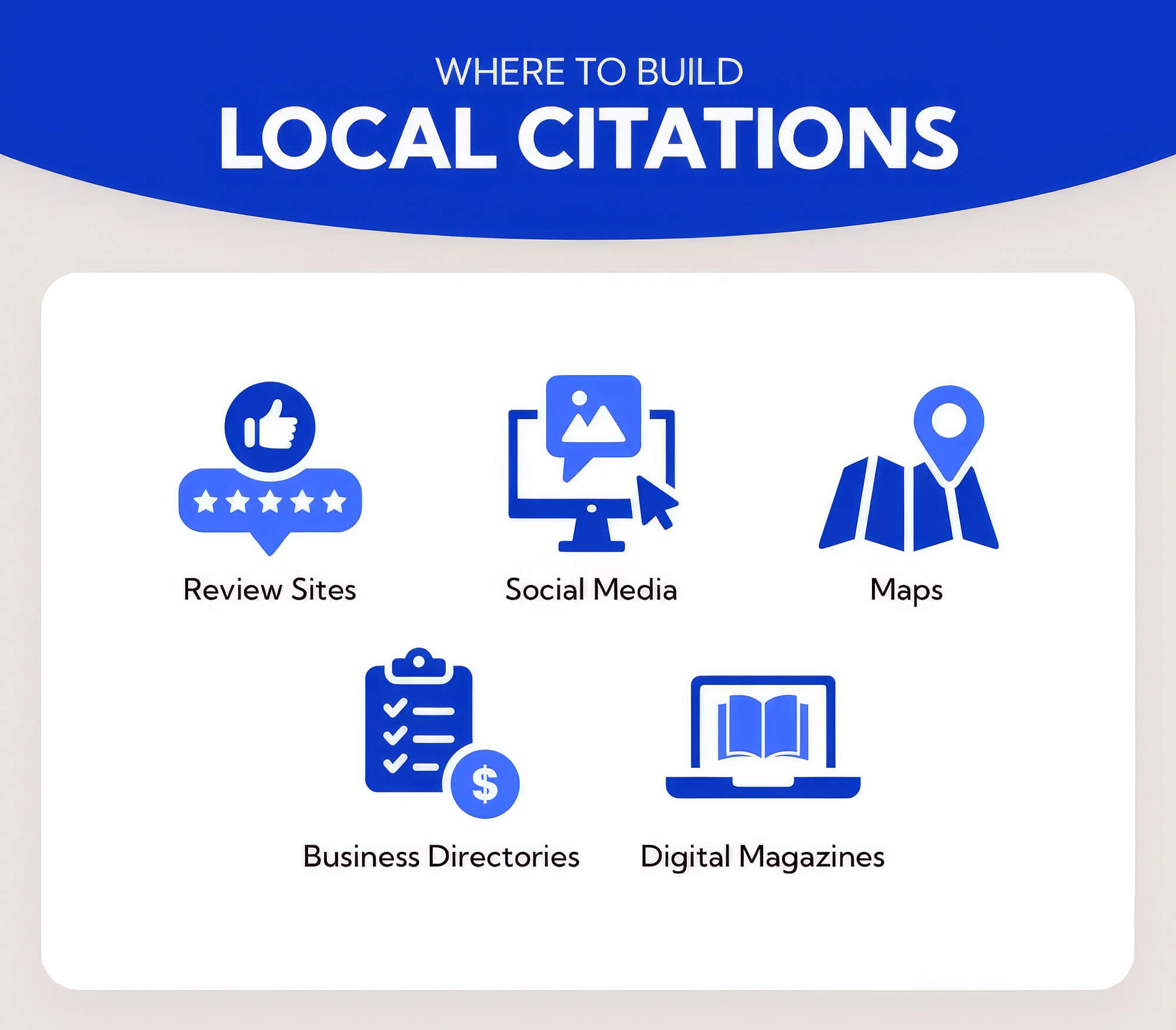
Keeping your details consistent across different platforms is a must for local citations. If the information is wrong or varies, it might give customers a bad impression and hurt your search engine rankings. Search engines rely heavily on local citations to confirm a business’s legitimacy, so make sure your details are accurate everywhere you’re listed.
Now, there are multiple platforms you can use to build local citations. Here’s a list of the most popular ones:
- Google Business profile, which is vital for Google Maps visibility
- Yelp, a prevalent local citation and review site
- Bing Places, just Google Business but for Bing
- Facebook Business Pages: if you want to pull customers from Facebook
- Better Business Bureau, for adding trustworthiness to your business listing
- Apple Maps, which is vital for listing on iOS devices
These platforms, along with other popular local directories, are cited by most businesses to expand their reach. Third-party aggregators might list your business too, so spotting and claiming these listings is crucial. Conducting a citation audit, using tools like BrightLocal, Moz Local, or Whitespark, helps keep everything in check.
Once the audit has identified inconsistencies in the citations, you need to claim and correct each listing inconsistency. You should also identify niche-specific directories and ensure your business is listed on these directories.
Remember that local citation building and management is not a one-off task but a continuous one. You need to regularly monitor these sources to ensure your business information remains up to date across all sources. Ensure you’ve set up alerts to monitor changes in these citations and perform periodic reviews to check for inconsistencies.
Maintaining consistent citations across multiple platforms ensures more customers reach you and boosts your organic SEO rankings.
What is Local SEO, And Why is it Important?
Local SEO is a subset of search engine optimisation that aims to improve a business’s visibility within a particular locality or geographic area. It differs from traditional SEO in that while conventional SEO aims for a global reach, local SEO only focuses on the region of interest. This involves optimising your business profile and website to improve visibility for local customers.
In today’s mobile-first digital world, where over 96% of all searches are mobile, local SEO is more important than ever, especially for smaller businesses. Most customers these days use local search to find services and businesses on the go. In this situation, a properly executed local SEO strategy can enhance your business visibility and attract customers exactly when they need you.
When executed effectively, local SEO can improve foot traffic to your brick-and-mortar store and digital traffic to your website. This combination helps you stand out against the competition, enhance engagement with the audience and generate leads and better sales.
Understanding The Local Search Landscape
Local SEO is considered highly nuanced, as multiple factors influence the local search environment. Essential to local SEO is your Google Business profile, which plays a vital role in local search rankings. Your Google Business profile helps you manage your business’s presence on Google products, such as Maps and Search.
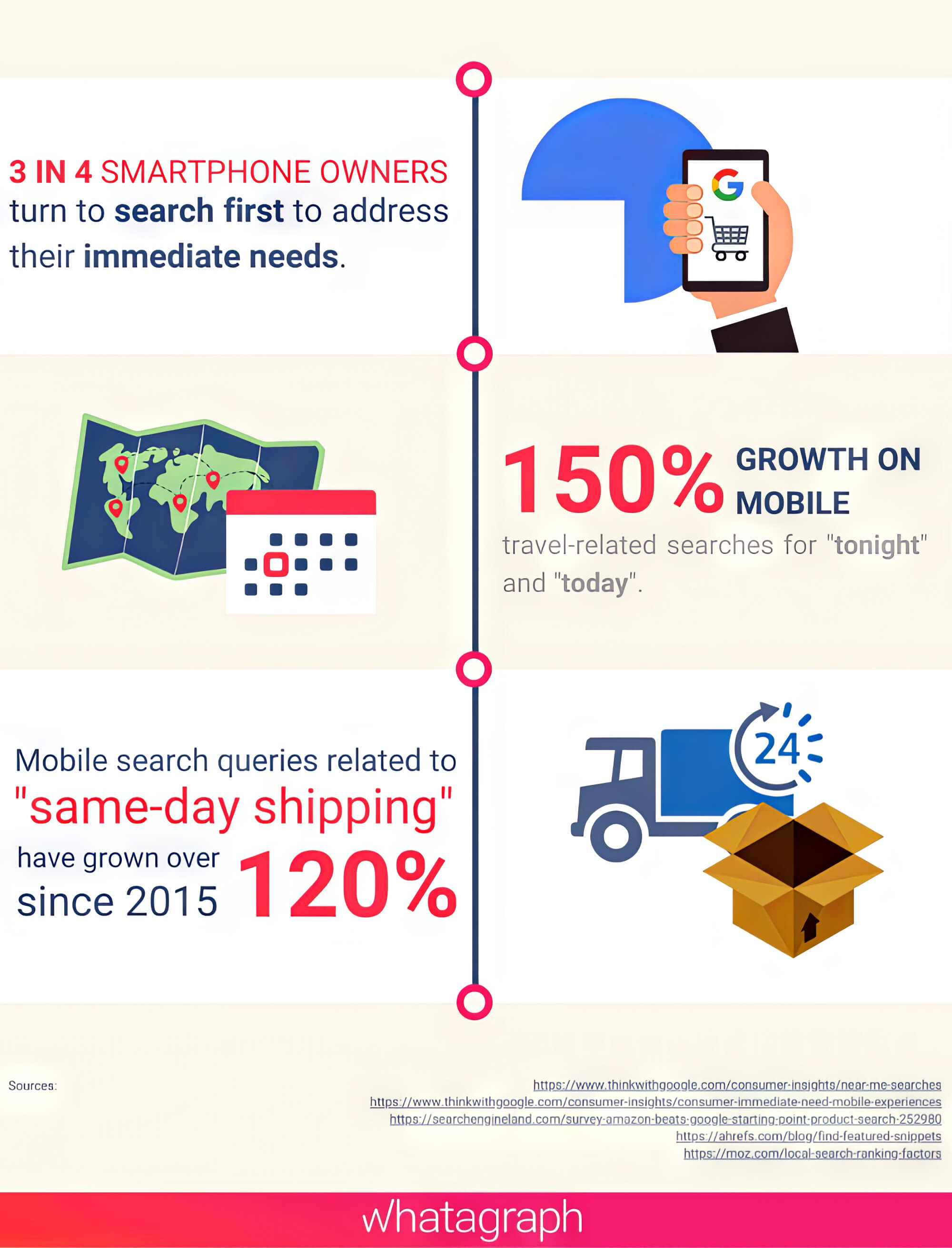
When you’re appropriately listed on Google Business, local search algorithms will evaluate user queries for relevant local searches and show your business to users if it is relevant, nearby and prominent in the locality.
Here, there are three terms to pay attention to: proximity, relevance, and prominence. These are the three factors local search algorithms evaluate when deciding which business results to display. Let’s take a look at each of these terms in detail.
Proximity determines how close the searcher is to the business, and Google can quickly determine this using GPS data. Relevance indicates how well the business can match and solve the searcher’s query, and prominence refers to the business’s online reputation. Here, factors such as customer reviews, local citations, and popular content play a vital role.
It’s easy to realise that a dedicated and solid local SEO strategy is essential for balancing many factors and making them work in your favour.
Identifying Your Target Local Audience
But just throwing a bunch of cut-and-dried local SEO tactics at your website won’t work unless you’ve taken the first important step, identifying your target local audience. Unless your target audience is clearly defined, you won’t be able to tailor your SEO efforts to match their needs.
To begin with, you’ll need to conduct extensive market research about local customers and understand their needs, aspirations, emotions, and demographic data. Next, you’ll have to develop detailed buyer personas based on the researched data, create content, and tailor your local SEO strategy accordingly.
Focusing on industry-specific audiences in your local area will help you fine-tune your local SEO efforts and be present for customers when they need your services/products.
Optimising Your Google Business Profile
Now that you know how important your Google Business Profile is for local SEO on Google, let’s look at how you can optimise your profile for the best results. A well-optimised business profile will help your business find the right audience at the right time. In the following sections, we’ll look at how you can claim and optimise your Google Business Profile.
Claiming and Verifying Your Listing
The first step to reaping the benefits of local SEO is to claim your Google Business profile so that it can appear in local search results. The following is a stepwise process for doing exactly that:
- First, sign in to your Google account and navigate to the Google Business profile page
- Next, enter your business name; if a listing exists, claim it as yours; otherwise, create one
- Enter your business’s up-to-date, correct information, such as address, phone number, etc.
- Next, verify your business. Now, Google provides multiple methods of verification, such as:
- Postcard verification
- Email verification
- Automated phone call or text-based verification
- Video verification
- Once verified, you’ll get a confirmation code, which you need to enter into your profile to access all features of Google Business.
Optimising Your Business Information
Now that your local business profile is verified with Google, it’s time to begin optimising your information so that your local business appears on the top of search engines. This is part of local search engine optimisation, which improves your rankings on local search results.
Here’s a list of some critical data points you need to optimise in your Google Business profile:
- Make sure your business name is accurate and consistent throughout
- Ensure the address of your establishment is correct
- Always provide a local phone number for answering queries
- Provide your website or landing page URL so customers can easily find you online
- Select the correct category for your business, as this will help Google match your business with relevant queries
- If your business operates across multiple locations, make sure you specify the areas you cover
- Finally, make sure you update your business hours regularly and include any changes due to holidays or events
Along with the above, crafting a hooking business description that increases customer confidence and trust is vital. In the description, you should highlight your business’s USP, tell customers what sets you apart from the rest, and clearly understand the services/products you offer. And make sure you optimise everything with relevant keywords.
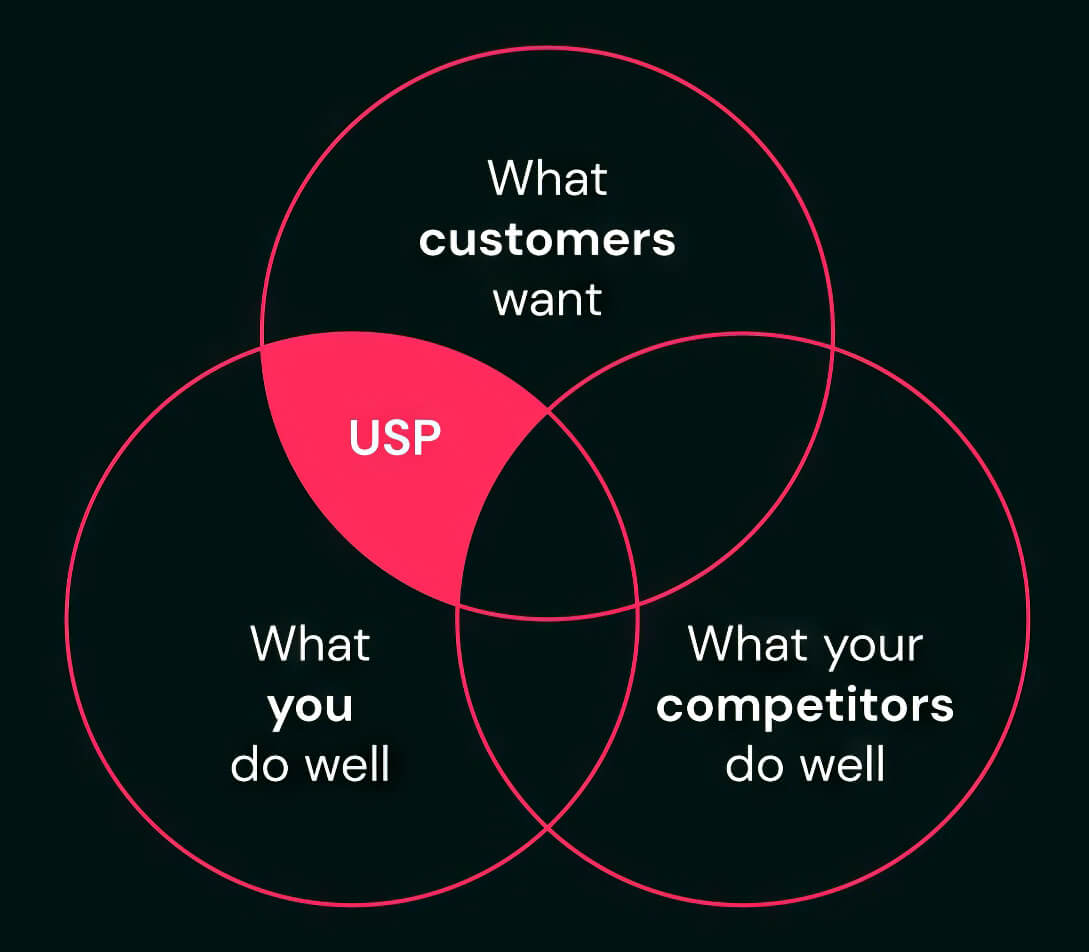
Leveraging Google Business Profile Features
Once your profile is optimised, you’re halfway there but not quite at the destination yet. Next, you must understand how to leverage the different features available to you to improve local search rankings and appear at the top of local search results.
Here are some of the steps you can take to make the most of your Google Business profile:
- Post regularly about your business to keep audiences updated and engaged
- Update your profile with the latest photos of your shop, products and offerings
- Professionally handle and respond to both positive and negative reviews
- Offer discounts, deals and prizes to keep customers interested and engaged
- Use messaging and booking integrations to allow customers easy interaction with your business
Using these features proactively can help your business provide a great customer experience and keep them returning for more.
Local Keyword Research Strategies
Ask any SEO expert (local or global) about keyword research, and they will swear by it. Rigorous and thorough keyword research is the backbone of any effective search engine optimisation campaign. So, local keyword research is key if you want to create a local SEO strategy to bring in more organic traffic.
Local keyword research is a tad different from the traditional approach. Instead of going after broad terms, it hones in on search terms locals actually use. This precise targeting is vital, as it helps your business appear on search pages just when potential customers are looking for what you offer.
This not only makes them more accessible to customers but also increases business visibility and improves connections with the target demographic. The following sections will examine local keyword research strategies in more detail.
Identifying Location-Based Keywords
It would be best if you began by inserting geographic modifiers into your queries to identify location-based keywords. Such modifiers include states, postcodes, suburb names, and famous landmarks. You can use tools like Google Keyword Planner to understand search volumes for these terms and other related metrics.
Another effective method of identifying target keywords is to analyse competitor’s content and understand their target keywords. At the same time, sifting through local search data and audience behaviour data can provide details into how the local audience searches. Remember that these local keywords should be used naturally in your content and shouldn’t appear forced.
Understanding Search Intent
More than just knowing what users are searching for is required. You also need to understand the intention they have in mind when they’re performing the search. Are they looking to buy something or merely looking for information? This intent data can be invaluable to your local SEO efforts, as it will help you optimise and tailor content to your audience’s intentions.
Primarily, there are four different types of search intent, as listed below:
- Informational or looking for knowledge
- Navigational or looking for a location
- Transactional or looking to make a purchase
- Commercial or searching for services and products
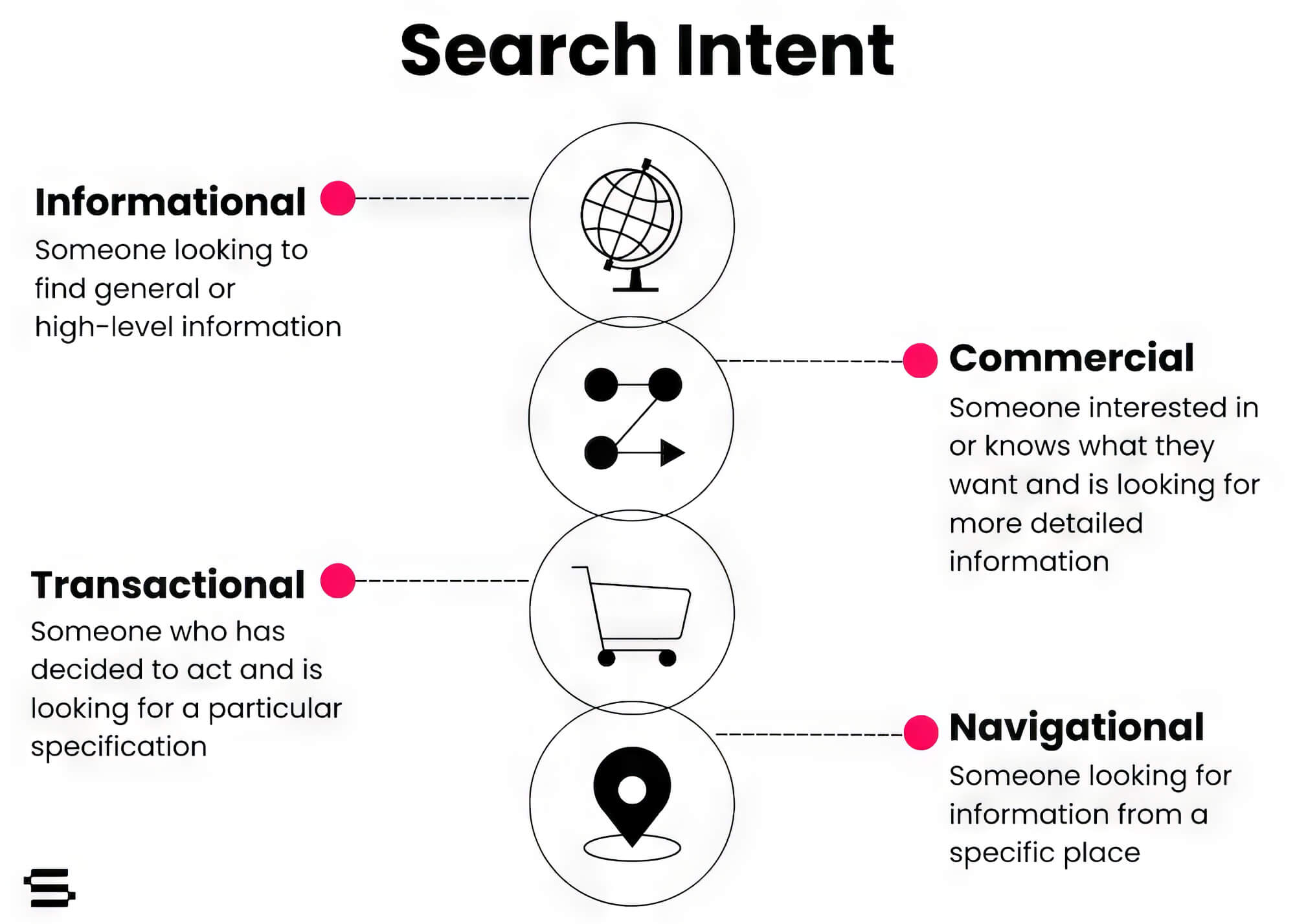
Regarding local searches, matching the content with the intent can boost engagement and conversions by leaps and bounds. For instance, if a user is looking for the “best shoe shop near me,” they are most likely actively looking to make a purchase. Showing them content accordingly can ensure they turn towards your shop.
Keyword Mapping and Implementation
Keyword mapping refers to connecting specific keywords to specific content pieces, pages and local listings for your business. This strategic technique ensures each page on your website is mapped to the relevant keywords. Keyword mapping leads to improved visibility for your website pages for those terms that have been adequately mapped.
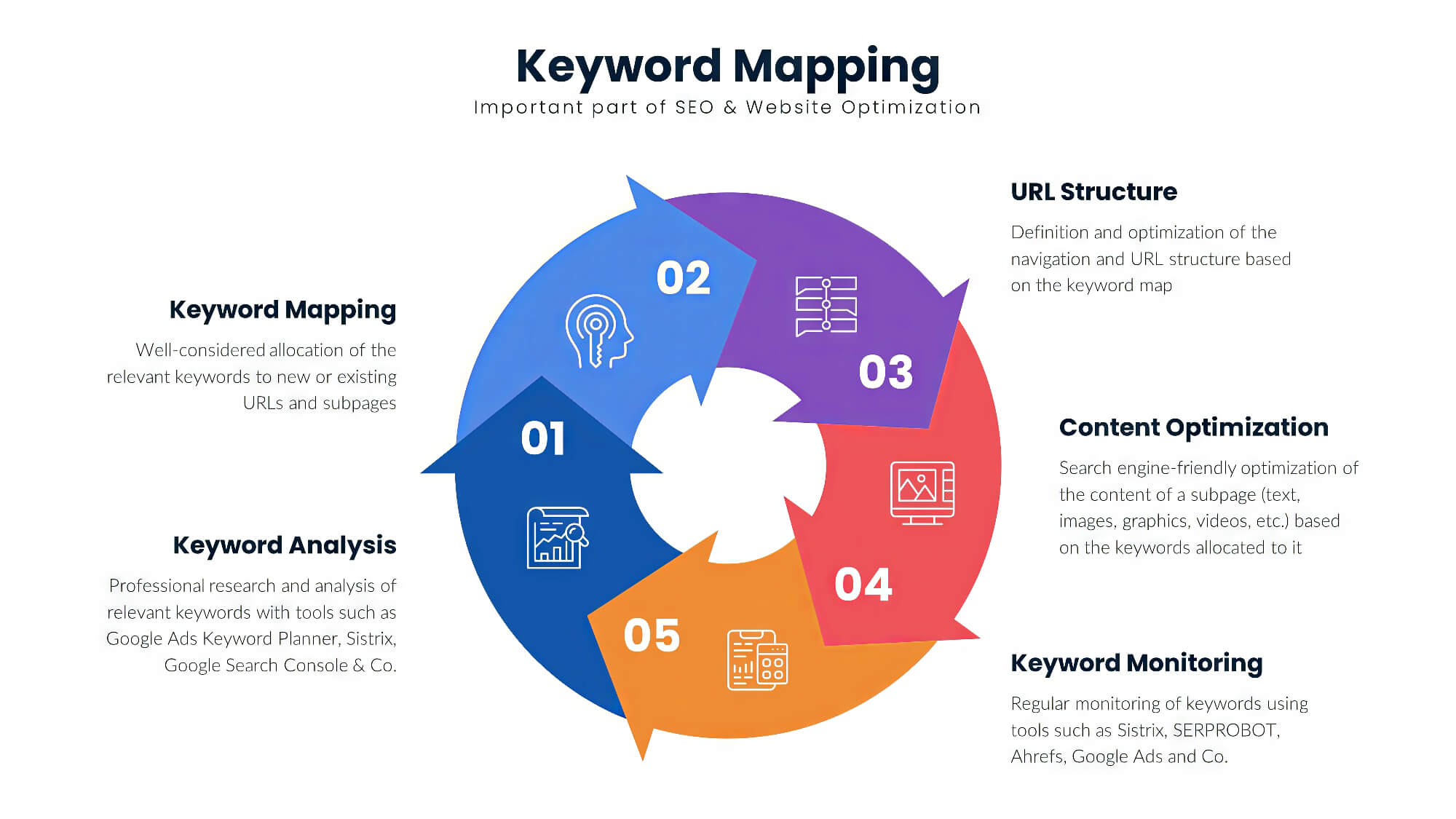
By “adequate” mapping, we mean you should follow local SEO best practices when performing the task. This includes naturally incorporating location-based keywords into your website’s content, including keywords in the meta tags and URLs, and inserting suitable keywords in local business listings.
It’s important to maintain a natural tone to the content when doing this. Google always frowns upon the forced insertion of keywords, and you might even get penalised for keyword stuffing. A good trick is to use synonyms and variations of the keywords to improve readability and avoid overuse of the same terms.
Importance of NAP Consistency
NAP is an acronym for Name, Address, and Phone Number, the three basic pieces of information every customer needs to find and contact your business. Maintaining NAP consistently across all digital channels is vital to inspiring customer trust and ensuring they can connect with your business when needed.
Due to the rapidly changing nature of online information, online listings and citations can often contain incorrect NAP information. There might also be discrepancies in the NAP information between your different social media pages. Such inconsistent NAP data can confuse potential customers and affect local search rankings adversely.
To prevent any mix-ups, audit your online presence regularly and ensure that your NAP details are always correct. Keeping this information uniform for both potential and existing customers can boost their confidence and increase visits to your physical store.
Identifying and Fixing Citation Issues
Another aspect of local SEO is citation problems. Since local citations are usually spread across multiple review and listing websites, they can have problems such as duplicate listings, missing citations, and wrong or outdated information. Such incorrect citations can negatively impact your local SEO efforts, pulling your business down on the SERPs.
That’s why it’s essential to conduct citation audits to spot such mistakes. Many tools, such as BrightLocal or MozLocal, can help identify these problems. After identifying them, you can take the required steps to correct the mistakes. This includes connecting with data aggregation agencies and listing sites to correct discrepancies or remove duplicate information.
However, it’s essential to understand that this is not a one-off task. You must regularly and proactively monitor your local citations to ensure such mistakes don’t occur again. And anytime information about your business changes, ensure it’s appropriately updated across all online touchpoints.
Local Link Building Tactics
Next, we want to explore local link-building tactics, which are vital for improving your local SEO performance. Building local links improves your authoritativeness in the eyes of both human users and search algorithms. This, in turn, leads to better local visibility as high-quality backlinks provide your pages with better link juice and, hence, higher rankings.
Specific strategies can help you acquire valuable backlinks. For instance, consider partnering with other local businesses and sponsoring a community event that garners attention. Your business can also collaborate for guest posts on popular local blogs, which can draw in more views. Another way is to be present and active on online forums such as Quora and social media.
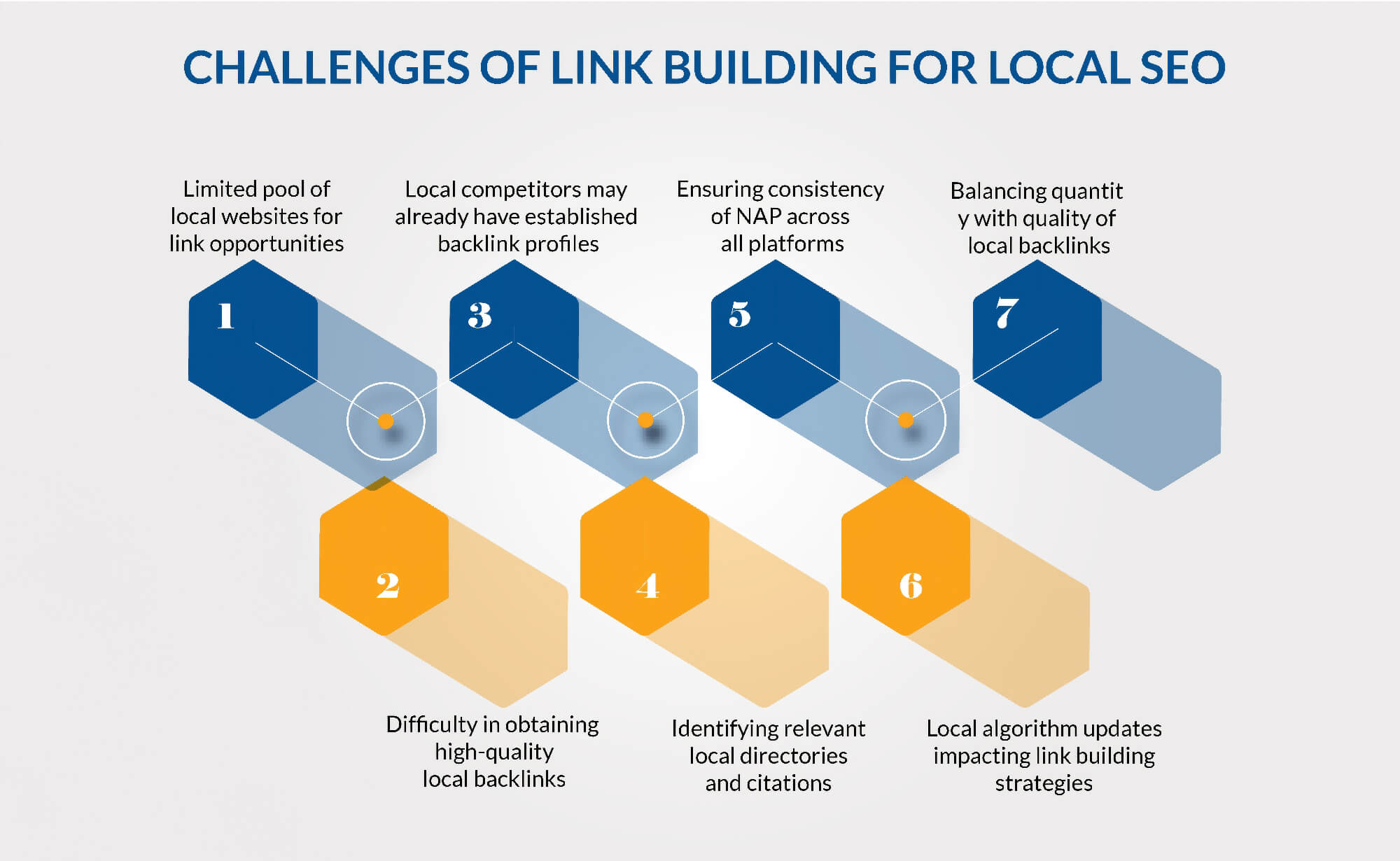
When building local links, it’s vital to focus on getting natural and authoritative links from local sources relevant to your business and niche. For instance, if a kids’ toyshop puts up a guest post on a blog that deals with luxury cars, that won’t work in its favour, no matter how popular the blog. Always make sure that the links you’re acquiring are contextual and relevant.
Creating a Local Content Strategy
Next, we need to examine how to create a local content strategy. This strategy is a focused content creation exercise that helps improve SEO within a particular geographical location or area. Creating such a dedicated local content plan is vital for enhancing local SEO efforts, as this guarantees that your content appeals to and addresses the needs of the local audiences.
At the heart of a local content strategy is the idea that you need to develop content that resonates with the residents of the location you’re targeting. This can include covering local news items, regional events of cultural importance, or even talking about topics that matter to the local community.
Once the local audience finds that you resonate with their needs, pain points, and aspirations, they’ll consider you a local authority business and contribute to increasing your relevance in local SERPs. Creating local content establishes your business as a community leader, strengthening bonds with the area’s audience. It also proves to the audience that you care about them, which inspires brand loyalty.
Developing Location-Specific Content
To effectively develop location-specific content, we must first understand our target demographic and their needs. Some best practices for creating location-specific content can include:
- Create relevant local guides that offer valuable information about the area contextual to your business.
- Featuring different neighbourhoods within your area of focus, talk about their local landmarks, history and local personalities.
- Create calendars of local events and holidays and participate in them regularly.
- Write blogs that focus on local issues, matters of importance, local environmental concerns, and community projects.
While implementing the above, ensure you incorporate local keywords naturally throughout the content to boost search engine visibility. At the same time, don’t overpromote your business; instead, stand as a pillar to the community that the local people can lean on in times of need.
Leveraging Local Events and News
Creating content centred on local news and events is a great way to engage your audience and provide timely, relevant information. By covering local events in your blog posts, you can keep audiences informed and connected to the community through your content.
Participating in local events is another excellent way to leverage local events for your business. Your business can interact directly with present and potential customers at these events and create content about your involvement. This serves the dual purpose of promoting your business and showcasing your active community participation.
Engaging with the Local Community
Creating local content means engaging with the local community as closely as possible. Active community engagement is vital to your local content strategy and helps build awareness, trust, and relationships.
To do this, you can participate in local forums and social media groups, where your business can interact with the audience and provide valuable insights. This shows you as an active community participant and lets you stay informed about community interests and concerns.
Another effective way to boost local engagement is to partner with local influencers, bloggers, and podcasters with a solid regional following. Such ‘collabs’ can help you reach a larger audience and provide a trusted voice to your business. You can also sponsor local events and donate to community organisations to improve your brand’s community standing.
The Role of Online Reviews in Local SEO
Finally, we need to explore the role of online reviews in local SEO. Since over 95% of customers read online reviews before purchasing, their role in your local SEO strategy is vital. Online reviews can impact your search rankings and CTRs (Click-through Rates) and influence trust.
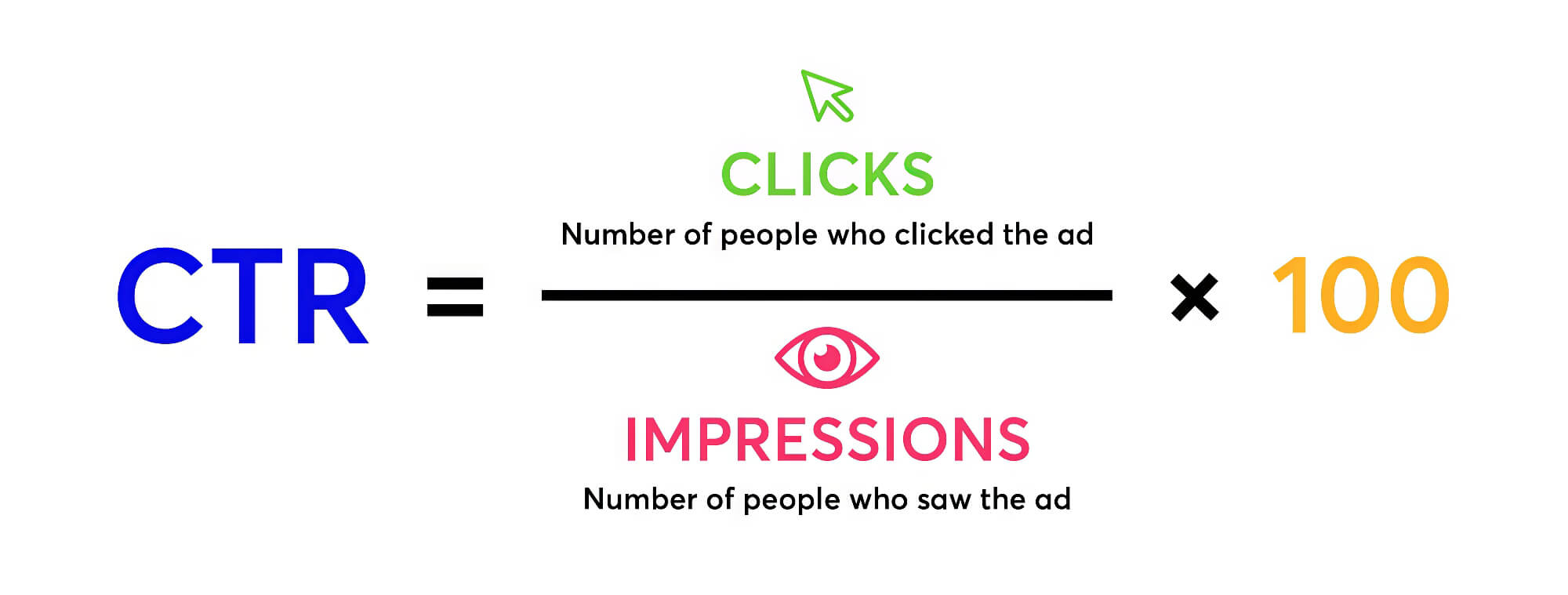
While positive reviews naturally boost your rankings in local search and give you a favourable spot on the SERPs, negative reviews can diminish your online presence and turn away customers.
Many positive reviews prove to people and search engines that customers value your business and its good reputation. This can send positive signals to the search algorithms, improving your visibility on products like Google Maps and Google Search. Positive reviews also help to increase the traffic to your website, which increases the chances of conversions.
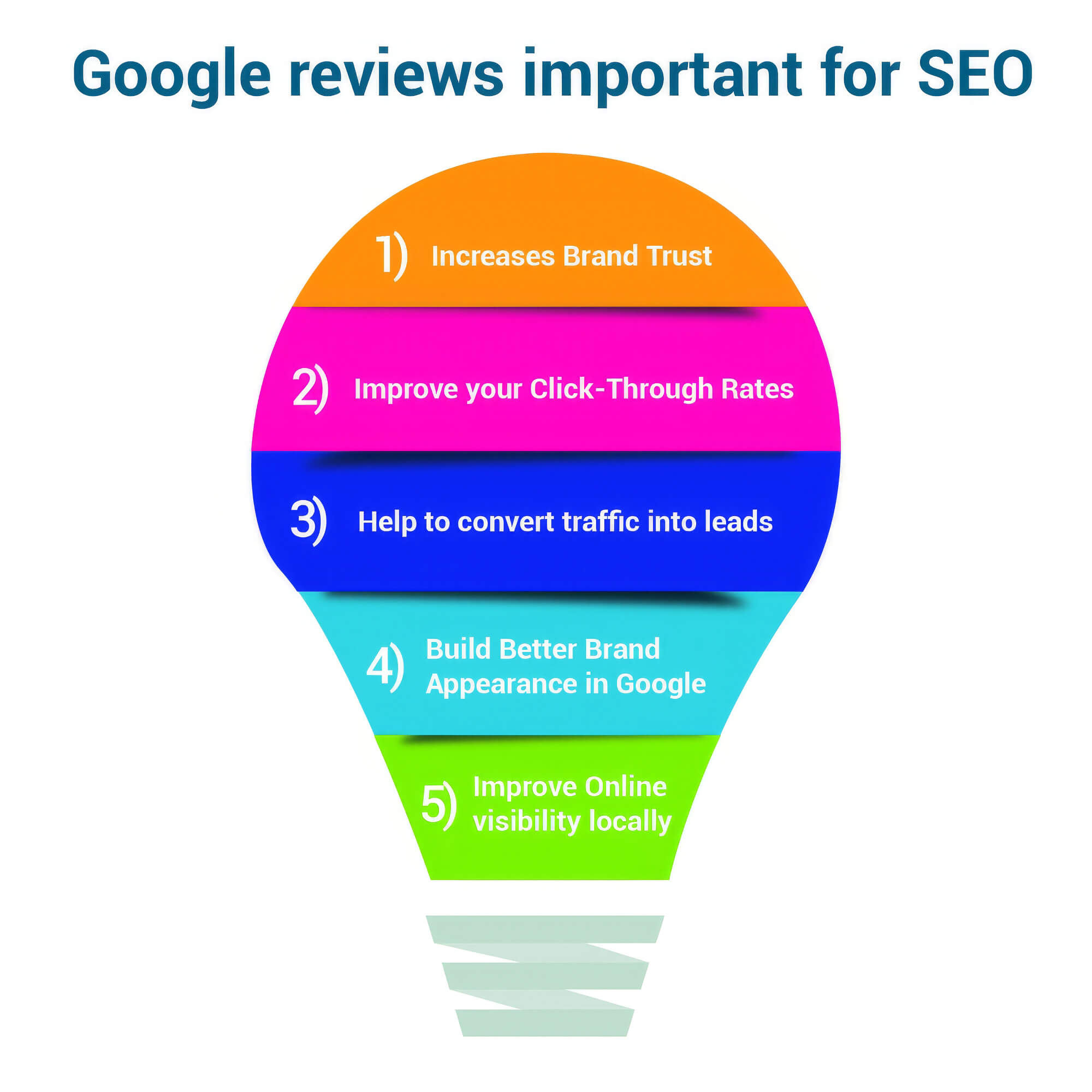
To ensure you get the full benefits of online reviews, you must encourage customers to leave feedback. This can be on the company website or local review sites. You can do this through follow-up emails, prompt customers in-store, or even provide incentives. You can share direct links to review platforms to make the process easier for the customers.
However, reviews are not one-way; you must also respond to them. Always acknowledge positive reviews with gratitude and try to respond promptly. Negative reviews, which should be handled carefully, are even more critical. Make sure you respond to negative reviews with professional courtesy and always offer solutions to the problems. This shows that even if a mistake has occurred, your business is committed to customer satisfaction and problem-solving.
Review handling is an ongoing process, and you need a dedicated resource who can regularly monitor reviews across multiple platforms, address concerns, and communicate effectively with customers. This helps your business build a positive reputation within the community and maintain a social standing.
Your Key to Attracting More Local Customers
Local SEO has become critical to any successful business strategy in today’s mobile-first world. By focusing on local SEO ranking factors and implementing effective local SEO strategies, businesses can significantly improve their visibility on search engine results pages (SERPs) and attract more local customers.
To achieve local SEO success, businesses must optimise their Google My Business profile, conduct thorough local keyword research, maintain consistent NAP (name, address, phone number) information across all platforms, build high-quality local links, create a location-specific content strategy, and leverage the power of online reviews.
By partnering with sitecentre®, businesses can tap into the expertise of our local SEO services team. We specialise in creating comprehensive local SEO campaigns that drive results, helping businesses dominate local search engines and establish a strong presence in local business directories.
Take advantage of the opportunity to unlock your business’s full potential in the local market. Contact sitecentre® today to learn how our local SEO tips and strategies can help you attract more local customers and achieve long-term success in the ever-evolving world of local search.
Local SEO FAQs
How can I outrank my local competitors in Google’s local search results?
To outrank your local competitors, optimise your Google Business Profile listing, leverage local SEO tools, and build a strong presence on local directory sites. Ensure your business information is accurate and consistent across all platforms, and create high-quality, location-specific content to improve your local search visibility.
What are some effective local SEO tools for improving my online visibility?
A: Some powerful local SEO tools include Google My Business (for optimising your Google Business Profile), Moz Local (for managing your local directory listings), and BrightLocal (for monitoring your local search performance).
These tools can help you enhance your local search visibility, track your local search queries, and identify opportunities to improve your local SEO strategy.
How can I ensure my business appears in Google’s local search results?
To appear in Google’s local search results, claim and optimise your Google Business Profile listing, ensuring all information is accurate and up-to-date.
Encourage customers to leave reviews on your profile, which can significantly impact your local search visibility. Additionally, create location-specific content on your website and build local backlinks to strengthen your online visibility.
Are industry-specific directories important for local SEO?
Yes, industry-specific directories can be valuable for local SEO. Listing your business on relevant industry-specific directories can improve your local search visibility for targeted local search queries. Ensure your business information, such as your physical location and contact details, is consistent across all directory listings to maximise the impact on your local organic search results.

